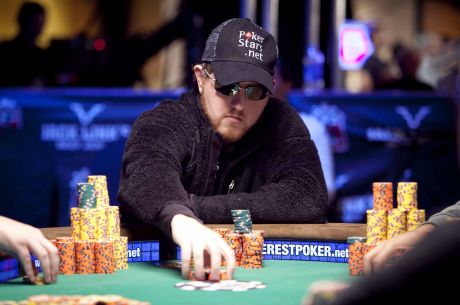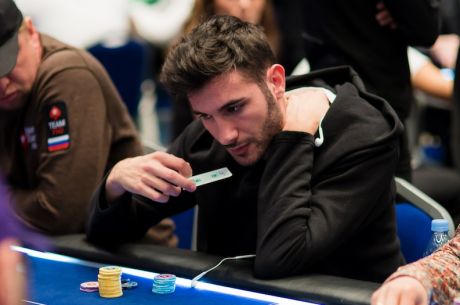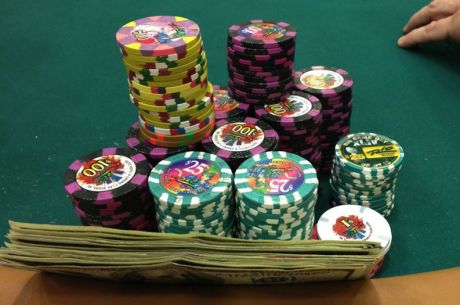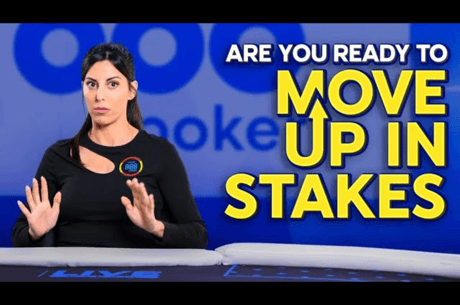Lose Your Focus, Lose Your Chips
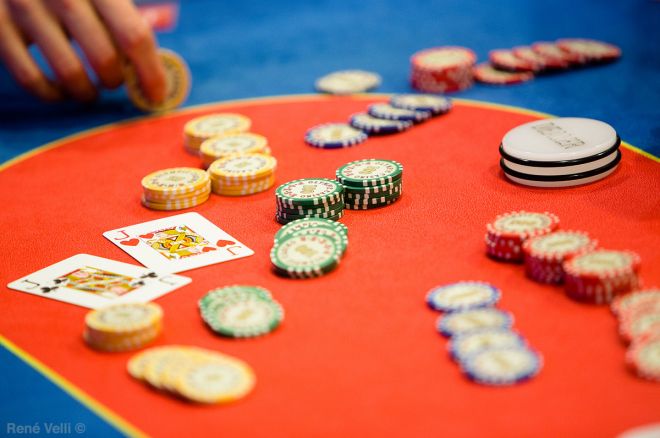
While playing poker, especially no-limit hold��em, staying focused is paramount. This is a simple and obvious concept, but failure to stay focused may result in big losses and even bigger headaches.
Even the slightest of slip-ups can produce terrible results. Mistakes, especially those made preflop, can compound in poker and create more problems on later streets. What follows is a story from a while back that well illustrated that very idea.
I was playing in a full-ring $1/$2 no-limit hold'em cash game at my local casino, PARX Casino and Racing. In recent years, PARX has dominated the poker scene on the east coast, luring grinders away from Atlantic City and into the suburbs of Philadelphia. The poker room is massive, featuring 60 tables, nightly tournaments, and several variants of poker.
I had just sat down with $300 �� the maximum buy-in �� when I was dealt JxJx in the small blind. Three or four players limped in front of me, including the player on the button, so when the action reached me I chose to raise to $17. My hope was to get heads up with a limper who would possibly fold to a bet on a dry flop.
But the player in the big blind reraised, making it $45 to go. The action quickly folded back around to me, and I weighed my options.
The player to my left was young, which I thought might make him capable of bluffing in this spot, but rarely do you see such advanced play in a $1/$2 game. I decided that the player��s range was very strong, and most likely the only hand I was in good shape against was AxKx.
Still, I also believed there were some bluffs in his range, and with $70 already in the middle I didn��t think I could fold for only $28 more. If I were fortunate enough to spike a jack and he did have an overpair, then I would be in great shape to stack him.
This is where I lost my focus.
Instead of tossing out an additional $28, I accidentally grabbed $45 �� the amount of his bet �� and dropped it over the betting line. The $62 I now had in front of me wasn��t enough for a minimum raise, but it was more than half the difference between $45 (the wager) and $73 (the minimum raise). Thus, I was forced to raise to $73, keeping the action open and allowing my opponent to either raise, call, or fold.
He opted to reraise the minimum, making it $101. Frustrated at my own mistake, I somehow convinced myself that he was more likely to be bluffing at that point than when he raised to $45. I moved all in, he instantly called, and the flop, turn, and river all produced bricks.
I felt like Mike McDermott at the beginning of Rounders as I waited for the player to turn over AxAx, and lo and behold when the river completed the board, he indeed tabled two bullets. Just like that I saw a full buy-in flushing down the drain.
One simple, little mistake turned a $45 loss �� I would��ve check-folded on the flop because a king appeared �� into a $300 loss. Even if I had better restraint and had folded to the reraise, I still would��ve lost an additional $28, and punting 14 big blinds preflop isn��t going to make you a profitable player.
Remaining focused at the poker table and avoiding compounding mistakes is important. All it takes in no-limit hold��em is one slip-up to erase hours of hard work �� or set you up for hours of work to recover what took just moments to lose.
Get all the latest PokerNews updates on your social media outlets. Follow us on Twitter and find us on both Facebook and Google+!

